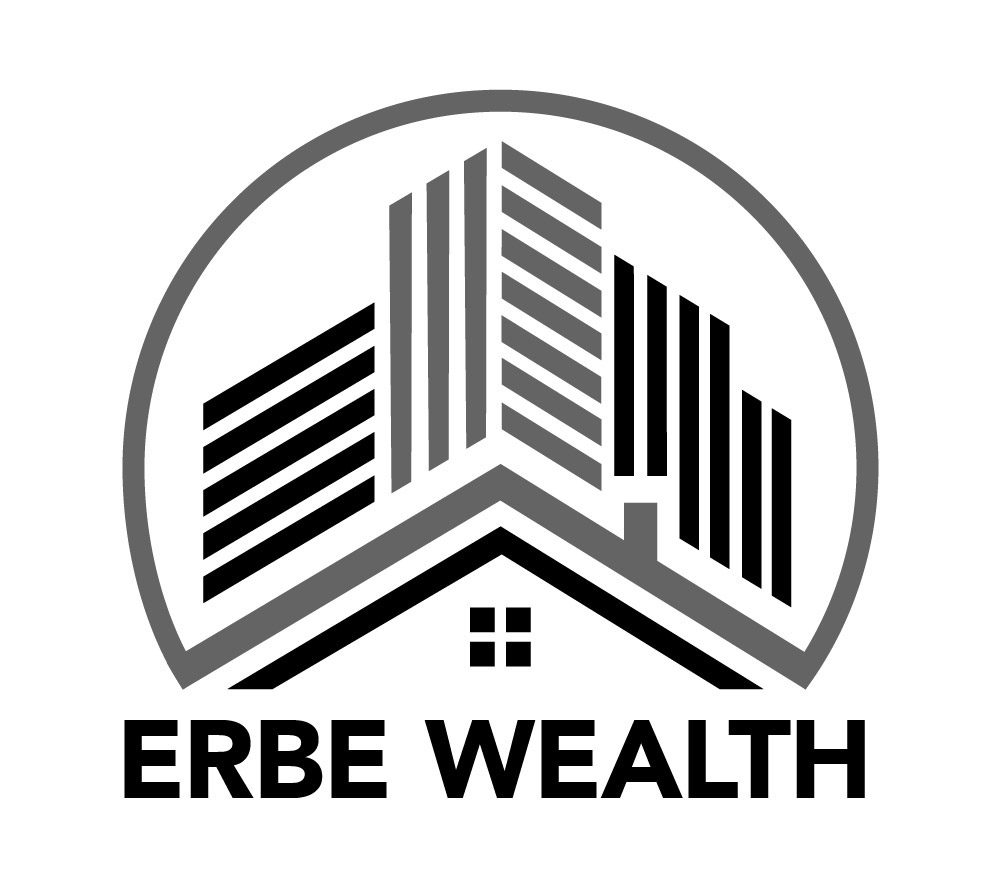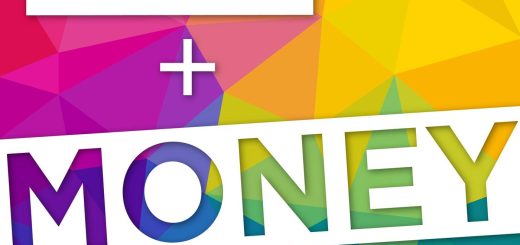Bricken Investment Group: The Secrets Of The Wealthy Investor With Stephanie Walter
Our guest is Stephanie Walter. She is the CEO of Erbe Wealth. She’s a Capital Raiser, Syndicator, and Real Estate Investor. She retired and sold her insurance agency of sixteen years. Her claim to fame is that she teaches professionals to unlearn what most of us have been wired to think about money. She’s a gateway between professionals and well-vetted deals. She lives with her husband and young son in Colorado. I’m excited to have you on the show, Stephanie. Welcome.
Thanks for having me. I’m excited to be here.
The pleasure is mine. There are a lot of things that we want to cover. We will be talking about what you think about money, debunking money myths, and why you don’t particularly love 401(k). There’s a lot of stuff to cover. There are three questions I ask everybody who comes to the show, though. Can you tell us where you started, where you are now, and how you got there?
I started like almost everybody else. I had a W-2 job. I worked there for about eight years. I was sat down for a review and they said, “You did a great job this year. We think you’ll get the best raise that we have, which is 2%.” I went home to my dad, who was alive at the time, and was like, “I worked out with this 2% raise. It’s going to look like that for the rest of my life. I don’t know what to do.” He’s like, “You know what will happen if you stay where you are, or you can go out and do it yourself and be your own boss.” He was an entrepreneur, so I’d seen him do it. That’s where I started.
It took many years to get to where I am now. I did start an insurance agency and had done it for sixteen years. I’ve always loved real estate, so I was investing in real estate all the way along. Eventually, I got invited to a bootcamp about investing in multifamily properties. In 2016, I felt like I had found what I’ve been looking for my whole life and loved the whole idea of syndications.
I thought it was an amazing opportunity. From there, I started throwing myself into that and found out that I liked capital raising and found a partner who likes finding the deals. We’re on our eighth deal together now. What I learned along the way is that dealing with very wealthy investors changed how I viewed how I was personally using my money. In 2018, I started changing where I had my money and how I was using it. Within a few years of doing that, I was able to retire from my insurance job. Retiring sounds different than it is in my day-to-day life. I still work because I love raising money. I get to do what I love, which is what retirement means to me.
If you can’t see yourself doing what you’re doing now, nothing will change if you stay where you are.
As you started to raise capital and start to interface with wealthy investors, what were some of the light bulb moments as you saw how they handle money differently? What were some of those things?
It took a long time for me to put the pieces together, but looking at their financials, I noticed that a lot of these wealthy people had no 401(k)s and IRAs. If they did, they were insignificant in relation to what their wealth was. I found that interesting because I also take money from average, middle-of-the-road investors and their finances are almost exactly the opposite. They have everything in the 401(k). Maybe they’re going to try out syndication, so that’s a tiny percent of their wealth. That was the first thing that I noticed.
It took some time to figure out why. I talked to some of these investors who became my friends to understand that the wealthy want to have full control of their money at all times. Largely, the wealthy want to invest in tangible assets. They want to invest directly in real estate through a syndication type of situation, or they want to invest directly in a business that’s not a mutual fund or the stock market. They want to invest directly into where they’re investing and they can vet the people running the business, their business plan, and what they plan to do. That’s a whole different mindset than most of us have.
You touched on a few things there. They’re in full control, they like tangible assets, and they want to be direct investors. Were there any other compelling reasons that you saw them, particularly because self-directed IRAs, 401(k)s, all those things are touted pretty heavily in the real estate investment space? What did you find when you got into these higher net-worth individuals? Were there any other reasons that maybe didn’t have those 401(k)s?
A wealthy person wants to know how much, and they do know how much money they have at any one time working for them. The problem with the 401(k) is that you have an idea of what your money will be worth in twenty years, but no one can tell you exactly how much money that will be. No one is going to be able to tell you what inflation is going to do to that.
Specifically for wealthy people, their biggest hang-up with that is unknown tax ramifications. That’s something that they don’t deal with. In every interaction I’ve had with them, they understand what tax ramifications are going to mean going in and going out. They have a plan to mitigate their taxes. A lot of people don’t quite understand that, but for wealth building, taxes take a huge chunk out of everybody’s wealth. If you don’t have a plan on how to mitigate those taxes, it’s a huge problem.
Wasn’t it Robert Kiyosaki that said there are two sets of tax laws? One for the informed and one for the uninformed. That’s the same idea there that the poor and middle class aren’t going to spend their time studying, like, “If I make a move with X and that equals Y in taxes.” That’s an intriguing point that you bring up there.
I think about that not just from an investment side with your capital into passive syndication, but maybe even as an active investor on the property tax side. You own something. What’s the biggest expense that most of us run into when we buy something? Considering that, that’s a very interesting point that we talk about, but probably not enough. What are some money myths maybe that you actively pursue debunking?
You have an idea of what your money is going to be worth in 20 years, but no one can tell you exactly how much that will be.
The 401(k) is up there, but a big one that’s a surprise to a lot of people is they feel like the wealthy investor is wealthy because they put their money into a high-risk type of investments. High-risk, high-reward is the myth I believe there, but the truth is that the wealthiest people that I’ve ever worked with do their due diligence. Overall, they invest in things that have very low-risk profiles, like in syndicated multifamily real estate. If you do your due diligence, that’s one of the highest returns versus low-risk profile types of investments out there.
They like to control and understand very many aspects of what they’re investing in. They’re not throwing their money into high-risk things that I’ve seen. I work with probably a smaller group of high-net-worth investors and there’s a good chunk of them. They’re not out investing in cryptocurrency that I’ve seen.
We often say that there’s a correlation between risk and reward. The higher the risk, the higher the reward. At least that’s been stated. Somebody said that to me and it took me back a little bit. I was like, “I’m not sure I agree with that.” We’re buying things that produce an income. To them, because it produces a higher return, that’s a higher risk. Maybe, except it makes money from the day we buy it, so I’m not quite sure I agree.
I agree with that.
What has it been like on the insurance side transitioning from selling insurance and running an insurance agency to now going out and raising capital? How was that transition and what did that look like for you getting your first deal done?
The first deal I did at the end of 2018, I did that one by myself. I realized after doing that one that I didn’t ever want to do it by myself again. I focused on the capital raise. I see a book behind you, the Raising Capital for Real Estate with Hunter Thompson. I wish I had read it when I first started. I read a few in 2020.
Personally, I didn’t have a lot of help in raising, so I learned a lot by what not to do and what to do. I was thinking of this. When I left insurance, I didn’t get any clients that came for me from insurance and then wanted to invest in real estate. That’s how people view you. I was the insurance agent, and it’s hard to switch to what I was doing at the time, but I did find that everybody could use this when they start, is writing out a list of people you know.
If you’re in a business before like I was, I knew people that liked to send me referrals. They’re the givers and nice people. I went to approach those particular people not necessarily for them to invest but for them to know what I was transitioning into. From that, that’s where I got some fantastic referrals. It doesn’t happen overnight.
Thankfully, my partner wanted to grow slow. Both of us didn’t want to jump into the biggest apartment complex. We want to start out with 30, 50, and then 60. Now, our new one is 160 units. For us, we wanted to build organically, and that took time. It’s marketing at the end of the day and that’s what you have to wrap your mind around. The skills are completely different from finding, negotiating, and running a deal instead of raising money for a deal.
I know that was even an epiphany for me where I’m like, “I’m 100% in the marketing business. If we’ve got partners that are bringing the deals, I’m all marketing. I’m not really in the real estate business. I’m in the marketing business.” It’s a little bit of a mind shift there. You said you learned a lot of what not to do early on. What does that mean?
Even I heard that in Hunter Thompson’s book. He thought he would have this dinner, do this wonderful presentation, and then everybody would be clamoring to invest with him. I did the same thing. I wasted a lot of money on my presentation materials. It was like, “This is who we are. This is our brochure. Isn’t this pretty? Don’t you want to invest with us?” I also went to many networking events that revolved around real estate, thinking I would get investors from there. I wasted a lot of time realizing that that was not the place to go to get investors, anyway.
I’ve found people who run businesses, people who possibly are selling their business and want to downsize, or people who understand how businesses run and seem to be a good person to talk to about this because an apartment complex is just a business. It’s your income, expenses, and your cashflow. That’s what it is. I do go on podcasts because I want to educate people. I do get a lot of wealthy people and they get it, but I want to get the people in these opportunities that have never heard of it, like I hadn’t a few years ago, and to understand that how that cashflow can completely change your life. That’s who I want to find.
You want to build organically, even if it takes time. It’s all marketing at the end of the day.
Talk to us about the first time you interacted with somebody who’s never heard of syndication. What have you found the timeline to be from getting them up to speed on their education, industry, terms, and knowledge to then finally across the, “I’m comfortable with this and I want to invest?” What’s that process like?
It depends on where they come from. If they hear me on a podcast, they’re most likely ready to go as soon as the concept hits with them. They’re ready to give it a shot, but there are a couple of different types of personalities that I’ve come to understand. There’s the personality that likes it, but they can’t pull the trigger. That’s as frustrating for them as it is for me. I call it the paralysis analysis.
There are personality types that truly get this and some that don’t. If I have someone that can’t decide and are like, “Not now,” then I put them on a list. I have tons of educational content that goes out to people. Maybe they will come around or maybe they won’t, but I feel like it’s good to get the information out there.
Do you put out a weekly newsletter? What’s a good hack, if you will, for producing content that people want to engage with?
I do a little bit of everything. I read a book. Oversubscribed is the name of it. It’s a great book of how to get a group of people to become your raving fans. It’s important to hit the people with lots of different types of content, like a blog to podcasts. I don’t have my own podcast, but I’m a guest on this one, then I will send it out to everybody.
I also produce these small videos and they are about the 30 questions that I get asked most from every investor that I talk to. Those are the video portion of it. You just have to be consistent and keep sending the information out. I’m still new to all of this because I dug in in 2019 as a capital raiser, so I’m still figuring it out, but I know that the content is huge. People spend a lot of time trying to get a wide group of net out there.
It is like a skinny, tiny little poll that you put in there and you find the one person, then the one person tells the other person. If they’re current investors and they are happy with getting their monthly distributions, you call them and ask if they know anyone. I don’t think it has to be necessarily hitting everybody because it’s what they say with 80% won’t do anything and 20% will, so that’s where all your energy should go.
Before we transition here into the final questions, I wanted to ask you about the name of your company. What does Erbe Wealth mean?
Erbe is German for legacy. It’s a legacy of wealth, which my father was the second generation. His father came over straight from Germany to work on a farm and they sponsored them back in the day. Once he did that, he then went out and started some companies, and then my dad was an entrepreneur as well. He passed away many years ago, but this was my way to honor him. I felt like I’m here in this position partially because I had the mindset open pretty early to being an entrepreneur and looking at things differently, and that was from him. I want to give people a legacy of wealth in their family too.
Thanks for sharing that with us. If you were to help our readers avoid one mistake in real estate, what would it be and how would you avoid it?
The biggest thing is if you’re getting into real estate and you don’t know what you’re doing. I come across people that have invested in syndications where they were like, “That might not have been the best choice for you.” Reach out to someone who is doing it who’s either a syndicator or an investor. I’m always happy to give because my investors are awesome and they love talking to people. How I got where to I am, I’ve had lots of mentors through my life. Find someone that is doing what you want to do. Most of the time they are more than thrilled and want to help you. If you can be under someone’s wing rather than doing it yourself, that would be my number one way of avoiding a mistake.
The next question for you is this. When it comes to investing in the world, what’s one thing you’re doing now to make the world a better place?
I feel like teaching people about these alternate investments rather than being stuck in the 401(k)s gives people a lot more freedom. That passive income and cashflow gives people so much more control in their own lives and they’re not handcuffed to a job that they hate. It certainly gives them a lot of freedom. When people aren’t feeling so trapped and have more options, I would hope they would do things to make the world a better place.
Finding, negotiating, and running a deal is very different from raising money for a deal.
If our audience want to get in touch with you, what is the best way to do that?
It’s on my website. You can go to www.ErbeWealth.com. We have an investment report. We put up there The 5 Reasons Passive Investing Might Be For You if you haven’t heard anything about this investing before. I have tons of content. That’s what it’s there for. It’s to help my people understand this type of investing. You can also be put on a list where we send out any type of investment opportunities we have as well as educational content.
Thank you so much for your time. I do appreciate it.
Thank you so much.



